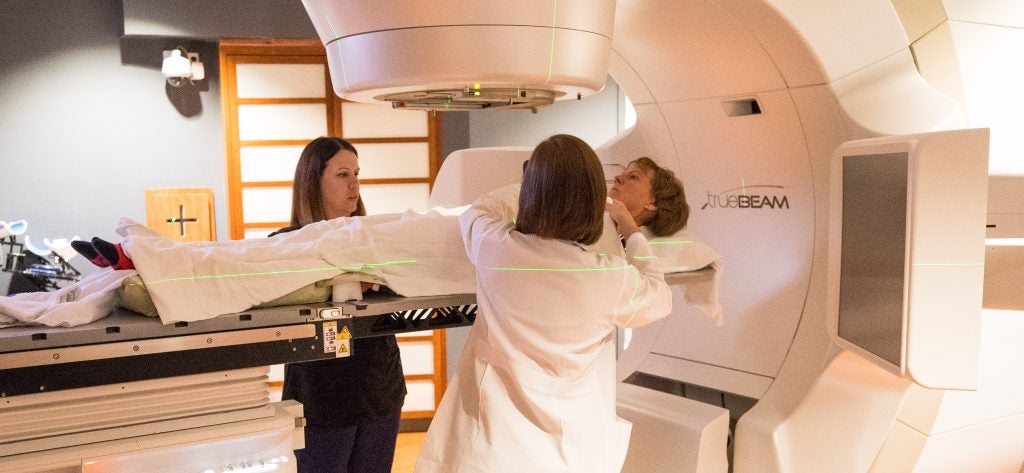ECU physicians share expertise at international lung cancer conference
Physicians in East Carolina University’s thoracic oncology program will represent the university on a global stage Sept. 14-16, making four oral presentations at the International Association for the Study of Lung Cancer in Chicago.
“One of the strengths of our thoracic program is our innovative thinking, our innovative treatment. It resonates with people nationally,” said Dr. Paul Walker, chief of hematology/oncology at ECU’s Brody School of Medicine, who will be giving one of those presentations.
ECU doctors will highlight the benefit of combining radiation therapy and immune therapy in the treatment of lung cancer. They also will discuss how genetic markers can determine the likelihood a patient will benefit from immune therapy – an innovation Walker said leads to an individual approach to cancer treatment.
“We just have to find the right therapy for each individual. Then if you can figure out who is going to do well with that specific therapy, treat those patients the same,” Walker said. “But those who have been filtered out, then you’re going to have to find a different treatment for them.”

Lung cancer patient Pam Black undergoes treatment at the Leo Jenkins Cancer Center. (Photo by Cliff Hollis)
They will also discuss a treatment to counter any harmful effects immune therapy can have in patients with lung cancer, including lung tissue inflammation that can cause breathing difficulties, often requiring oxygen therapy and even hospitalization. Walker’s team found that administering a monoclonal antibody typically used to treat arthritis resolved the issue within 36 hours for 79 percent of their patients.
The final ECU study – funded by the American Cancer Society and conducted in collaboration with the University of North Carolina at Chapel Hill and the University of South Carolina – looked at disparities in lung cancer treatment for African Americans, who elect to have surgery at a 12 to 13 percent lower rate than Caucasians. But Walker and his fellow researchers found that providing an educator to explain individual diagnosis and treatment options to African-American patients removed the racial disparity.
“This study designed something simple, using a separate educator, and proved this approach can remove the racial disparity in early stage lung cancer in both the decision for surgery and/or Cyberknife radiosurgery,” Walker said.
All four presentations will be published in the Journal of Thoracic Oncology.
In October, members of the thoracic oncology team will present two abstracts at the IASLC 18th World Conference on Lung Cancer in Japan.
“The fact that we’re being invited to present our work nationally and internationally validates the program and it recognizes what you are doing, how you are doing it,” Walker said. “We want other people to hear it and hopefully take it to heart.”
-by Rich Klindworth